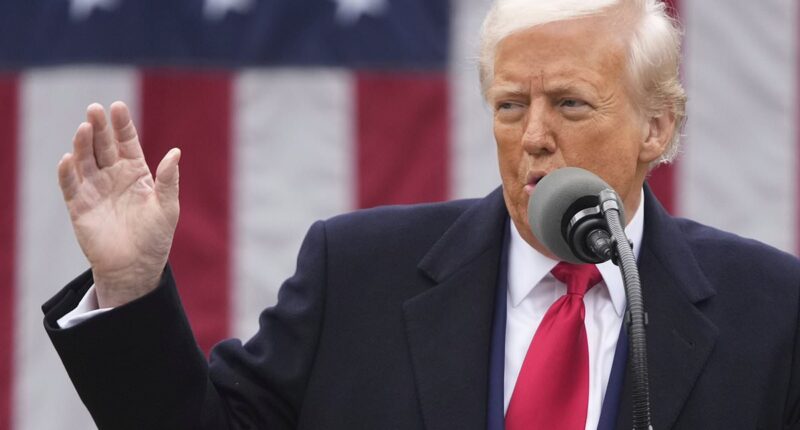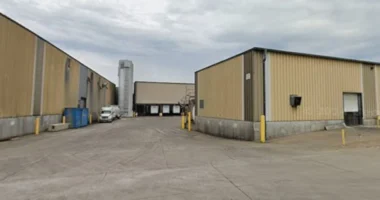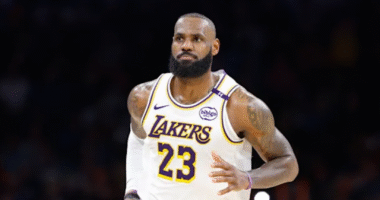Keir Starmer’s compliance and specific pleas ultimately worked: Great Britain experienced less severe consequences in the chaos caused by Donald Trump’s fixation on tariffs.
Contrary to expectations, Trump did not opt for the extreme measure of imposing a high, across-the-board tariff on all imports to the United States. Instead, he implemented reciprocal tariffs, matching the tariffs set by other countries on American exports.
During his address in the White House Rose Garden, Trump asserted that he was not being as aggressive, presenting a chart to illustrate that in many instances, American tariffs would only amount to half of what other countries were imposing on goods entering the US.
This is where Britain scored something of a victory. The table showed Britain put an average tariff of 10 per cent on American goods. So Trump proposes only 10 per cent on British exports to America – the minimum tariff in Trump’s new regime.
This compares well with an average 34 per cent reciprocal tariff on China, 24 per cent on Japan, 26 per cent on India and 20 per cent on the European Union. Perhaps Starmer might conclude that Brexit is not so bad after all.
Even so, the overall impact of Trump’s new regime will be negative. His table exaggerated the average tariffs America pays to other countries to make his new levies look reasonable.

In the end, Trump did not go for the nuclear option, as many feared. Instead he went for reciprocal tariffs (Pictured Wednesday during his speech)

A fleet of new vehicles in Purfleet, UK: The US is the UK’s second-biggest UK car importer and will face a 25 per cent tariff
His announcement marks a steady step towards protectionism and risks tilting the American economy into recession – growth has already slowed in the first quarter of this year – and with it much of the rest of the global economy, including Britain.
Trump thinks tariffs have a magical ability to transform the US economy but they are more likely to boost inflation, inhibit investment and undermine growth. Yes, some industries might relocate to America to avoid the tariffs. But the benefits of that will be offset by rising prices, lower productivity and more sluggish trade, all of which will undermine living standards.
We are collateral damage. Trump’s tariffs, light as they are for Britain, will still take their toll on a British economy already struggling to escape stagnation after the hammer blow of Chancellor Rachel Reeves’s disastrous October Budget.
Trump’s tariffs will hit all the industries in which Britain has a world-class reputation, which is why they generate over £60 billion a year in the highly competitive US market: luxury cars (which will face a 25 per cent tariff), aerospace, pharmaceuticals, Scotch whisky and much more.
The UK’s official economic forecaster, the Office for Budget Responsibility (OBR), has already downgraded its estimate of economic growth to 1 per cent this year. It did not take into account the impact of Trump’s tariffs for the simple reason it had no idea how extensive they’d be.
But it did calculate that they could cut its 1 per cent forecast in half, or more, leaving Britain barely growing at all. That would knock the Chancellor’s latest fiscal sums for six.

VP JD Vance is pictured prior to Mr Trump’s speech at the ‘Make America Wealthy Again’ event on Wednesday April 2
Reeves gave herself £10 billion of headroom in her October Budget to stay within her most important fiscal rule: that before the decade is out the government will cover day-to-day spending with tax revenues and only borrow to invest. Within a matter of months that headroom had disappeared. Hence last week’s Spring Statement with its spending cuts designed to restore that headroom.
Within a matter of days that has pretty much disappeared too. It was already diminishing when it was revealed the OBR’s calculations were based on underestimates of the interest rates the government has to pay to borrow.
Trump’s tariffs risk snuffing out what life there is left in the British economy. Close to zero growth means lower than forecast tax revenues. Hey presto, the Chancellor’s precious headroom disappears yet again.
Never has Reeves looked more out of her depth. She made no effort to create a buffer in her fiscal sums that would allow for the detrimental effects of Trump’s tariffs, which we could all see were coming. It means she will be back before the year is out with more spending cuts and tax rises. The political consequences for Labour will be dire. Thanks to Reeves, they already are heading that way.
A poll in the aftermath of her Spring Statement put Labour in third place on only 21 per cent. That massive majority Starmer won last July could disappear as fast as summer snow come the next election.
Other major victims of Trump’s tariffs, such as China and the EU, have been preparing retaliatory tariffs of their own against American goods. Starmer now has no need to go down that road.
There is still some hope of a trade deal with America. It would not be anything like a full free trade deal but it could ameliorate some of the tariffs Britain will now have to pay. But the harsh truth is that such a deal is talked about a lot more in London than in Washington DC.
Trump, to my surprise, has done us a favour. I doubt he’s in a mood to do any more.

















